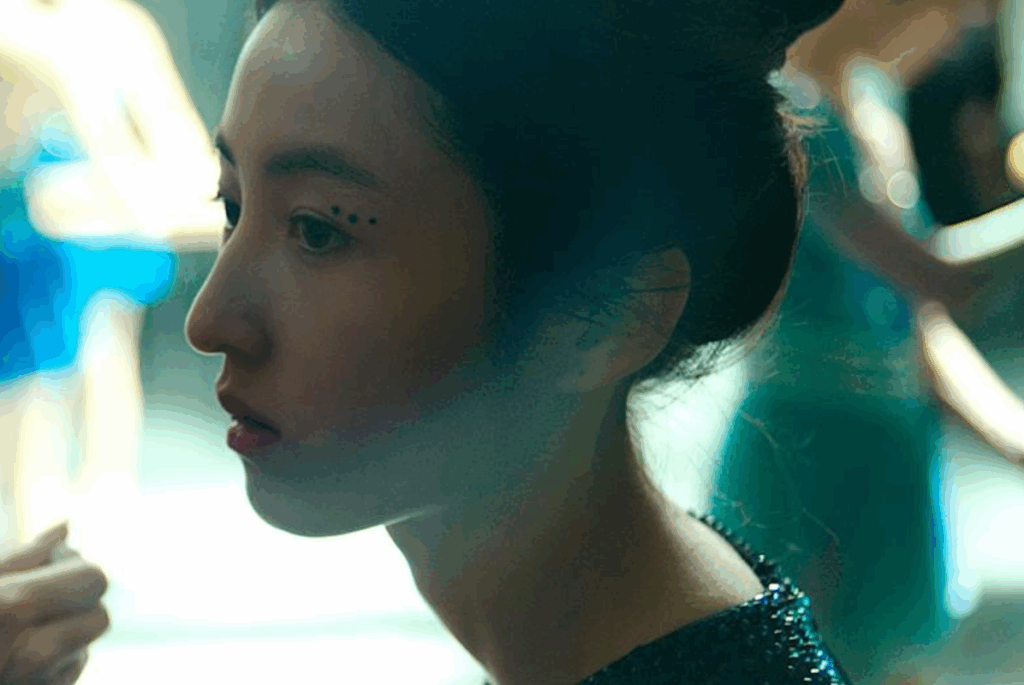Chinese genre film being selected for Cannes
Released in July of 2025, Girl on Edge has become one of the most talked-about psychological thrillers in recent Chinese cinema. Notably, it was selected for the Directors’ Fortnight section at the 78th Cannes Film Festival. Directed by Zhou Jinghao and produced by Chen Zhengdao, the film blends the icy elegance of figure skating with the discussion of pathological mother-daughter relationship. Now let’s see why this Chinese genre film can be selected for Cannes and what limitations does it have.
Ground-breaking storyline
The film follows Jiang Ning (played by Zhang Zifeng), a young figure skater pushed to the extremity by both her own ambition and terrible expectations of her mother and coach Wang Shuang (Ma Yili). Jiang Ning ’s anxiety continues deepening especially after a rival skater named Zhong Ling emerges with extraordinary talent. Since then, the boundary between reality and illusion begins to blur. Jiang Ning ‘s psychological corruption expands little by little on the cold, glittering stage of competitive ice skating. Who exactly Zhong Ling is? Did Jiang Ning really kill? The film has left many mysteries for audiences to explore. The film centers entirely on female characters and it openly portrays female ambition without apology, which are rare in Chinese movies. This is undoubtedly pioneering in Chinese cinema as it opens up a new stage for the representation of women characters. Female protagonists are no longer just playing the roles of eye candies in Chinese suspense film, they can also take control of driving the plot.
Unique Artistic Style
One of the film’s most striking achievements lies in its visual and sonic design. Director Zhou Jinghao and his team transform the skating rink into a stage of both beauty and menace, using wide shots of glittering ice and tight close-ups of blades cutting across its surface to heighten the tension. The contrast between elegance and violence shows the cold precision of classic thrillers. Reviewers such as DeepFocushttps://movie.douban.com/review/16861937/ praised the film’s “icy aesthetic” as a metaphor for the characters’ isolation. The soundscape further amplifies this unease: the screech of skates, the echo of breathing, and bursts of orchestral music indicate the collapse of Jiang Ning’s psychological line.
Yet this filming style is not without flaws. Some viewers felt that the heavy emphasis on atmosphere slowed the pacing, stretching too much some of the dread moments. While the visuals succeed in crafting an oppressive mood, the film occasionally risks prioritizing style over narrative drive.
Pioneering Female Narratives
At its core, Girl on Edge offers a rare portrayal of female ambition in Chinese cinema. The story is driven entirely by women. Unlike many Chinese thrillers that sideline women, this film reveals their bare competitions, struggles, and ambitions. In the film, Zhong Ling takes away the mother’s attention and outshines Jiang Ning in performance. Under huge pressure, Jiang Ning kills Zhong Ling, pushing her ambition and desire to an extreme and ending in violence. This kind of narrative is rarely seen in Chinese cinema. Female characters in Chinese films are often bound by moral constraints, where flaws in virtue are unacceptable and such “badness” can exist only in negative characters. This inflexible character design has long deprived women characters of depth and complexity. By contrast, the film’s depiction of female ambition running out of control is both valuable and groundbreaking.
A Controversial Ending
The film’s buildup is full of tension and psychological unease, but its conclusion takes an unexpectedly reconciliation. Rather than turning to tragedy or ambiguity, Girl on Edge ends with Jiang Ning defeating her inner demons, winning the competition, and restoring good relationship with her mother. In a genre that traditionally prefers bleak finales, as seen in Black Swan or orthers, this optimistic resolution feels unusual.
For some, this departure from convention is refreshing. It challenges the assumption that psychological thrillers must end in despair, suggesting the possibility of good ending. Yet many critics and viewers disagreed. On Doubanhttps://movie.douban.com/subject/35183324/ the most famous comment website in China, comments described the finale as “too much chicken soup,” arguing that it reduces the carefully crafted tension of the earlier acts. Many comments say that this ending loses some of its edge, it’s a pity.

Photo of Girl on Edge
Still, Girl on Edge is a noteworthy Chinese psychological thriller, not only for its artistic experimentation but also for its rare, unapologetic focus on female ambition. In the past decade, quality works in China’s horror and suspense genres have been scarce, and those gaining international recognition even fewer. Despite its controversial ending, the film marks significant progress for Chinese cinema in this genre while also opening new space for the exploration of female narratives.
